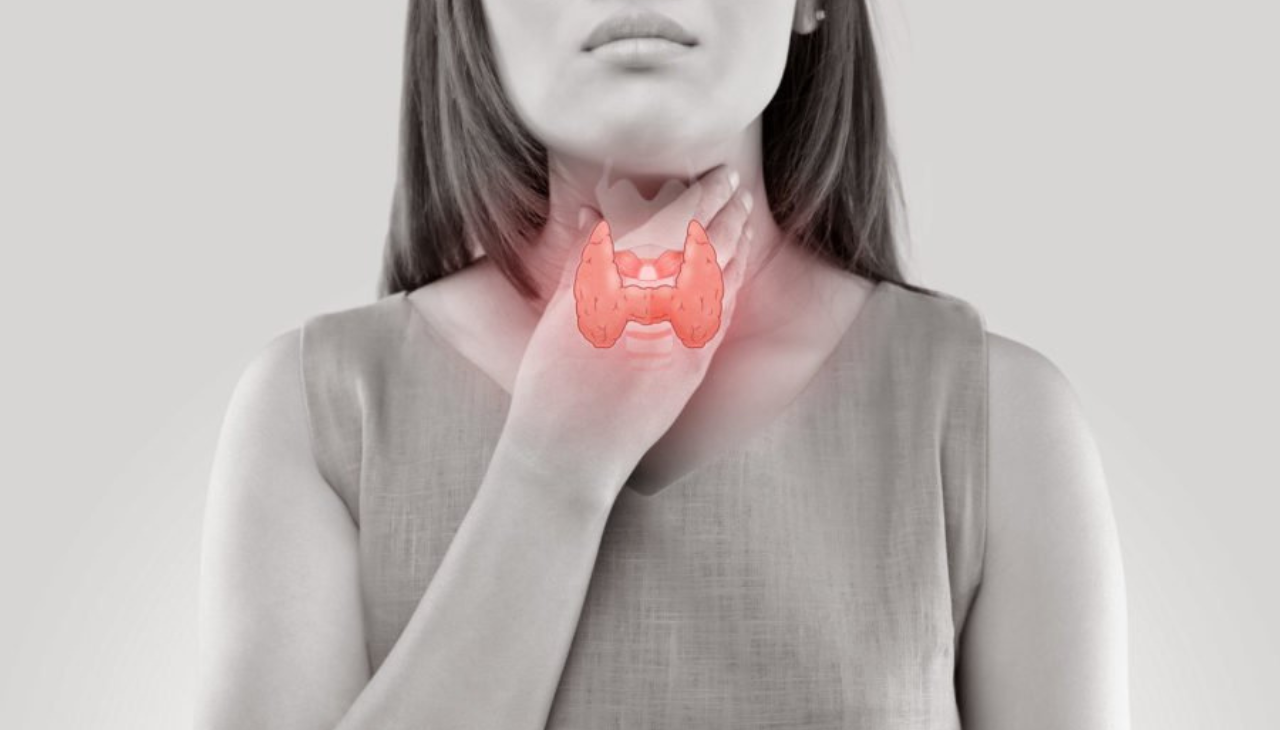Dietitian Blog, Health/Wellness, MNT Guidelines, Patient Blog | May 6 2022
Does a gluten-free diet effectively treat Hashimoto’s thyroiditis?

Hashimoto’s or Hashimoto’s thyroiditis is an autoimmune disease where the body’s immune system attacks the thyroid causing damage and preventing it from making enough thyroid hormones. It is the most common thyroid disease in the United States, affecting five in 100 people.1
Those with existing autoimmune diseases, such as celiac disease, are more likely to develop Hashimoto’s disease.2 Although nutritional interventions for healthy thyroid function, including appropriate intakes of iodine, selenium, and zinc are well-known, the effect of gluten on Hashimoto’s and other thyroid conditions continues to be studied.
The evidence
More and more research indicates that gluten intake and Hashimoto’s are correlated. One study looking at non-celiac wheat sensitivity (NCWS) among those with autoimmune diseases showed that 29 percent of patients with NCWS and 29 percent of patients with celiac disease developed an autoimmune disease, mainly Hashimoto’s thyroiditis.3
A recent pilot study was designed to determine if a gluten-free diet affects autoimmunity among women with Hashimoto’s. Researchers observed the gluten-free diet group had reduced thyroid antibody titers, as well as slightly increased 25-hydroxyvitamin D levels after six months. This suggests a gluten-free diet can yield clinical results for those with Hashimoto’s.2
Hashimoto’s is not considered curable at this time, but improvement of clinical symptoms can lead to a discontinuation of chronic medications and improve quality of life.
How it works
Although continued research is needed, it is possible that molecular mimicry is behind the relationship between gluten and Hashimoto’s. During molecular mimicry, the body produces antibodies to a component that is similar in peptide structure, yet still molecularly different than the structure the body is programmed to attack.
The peptide structure, or physical shape, of gluten and thyroid tissue is similar which could be stimulating a cross-activation autoimmune response. Think of a key that is so close in shape to another key that it can unlock a door it wasn’t intended to open.
For example, when a person with Hashimoto’s consumes gluten, the body could mistake that gluten for the thyroid, and stimulates an attack on the thyroid. The same is true of a person with celiac disease—although that person may follow a gluten-free diet, the body could mistake the thyroid tissue for gluten and mount an attack on the thyroid.4
What does this mean for your patients?
A gluten-free diet could significantly benefit your patient with Hashimoto’s. It can be difficult trying to convince someone to try a gluten-free diet if they have not been diagnosed with celiac disease. If you have patients with Hashimoto’s and they have not been diagnosed with celiac, encourage them to get tested.
Even if they do not test positive for celiac disease, a gluten-free diet could still cause substantial improvement in their symptoms. What do they have to lose? Trying the gluten-free diet can feel overwhelming but help your patients wrap their mind around all the foods that are naturally gluten-free, the potential benefits, and set them up for success.
Note to readers: The information discussed in this blog is not intended to replace medical advice. Please meet with your physician and dietitian before making any changes to your diet.
If you have more questions about managing your Hashimoto’s thyroid disease, it’s always a great idea to speak with a registered dietitian. Registered dietitians are the only credentialed experts qualified to address your unique health questions. Visit our new Virtual Nutrition Counseling page to schedule direct consultation with a dietitian today!
References:
US Department of Health and Human Services. Hashimoto’s Disease. Available at: https://www.niddk.nih.gov/health-information/endocrine-diseases/hashimotos-disease
Krysiak R, Szkrobka W, Okopein B. The Effect of Gluten-Free Diet on Thyroid Autoimmunity in Drug-Naïve Women with Hashimoto’s Thyroiditis: A Pilot Study. Exp Clin Endocrinol Diabetes. 2018 Jul 30; doi: 10. 1055/a-0653-7108. [Epub ahead of print].
Carroccia A, D’Alcamo A, Cavataio F, et al. High Proportions of People With Nonceliac Wheat Sensitivity Have Autoimmune Disease or Antinuclear Antibodies. Gastroenterology.2015 Sept; 149(3): 596-603.
Lerner A, Jeremias P, Matthias T. Gut-Thyroid Axis and Celiac Disease. Endocr Connect. 2017 May; 6(4): R52-R58.
Who we are
Dietitians On Demand is the nationwide leader in providing dietitians with jobs they love. If flexibility, competitive pay, a full benefits package, free CPEUs each month and a team dedicated to dietitians sound good to you, apply to our positions today.





